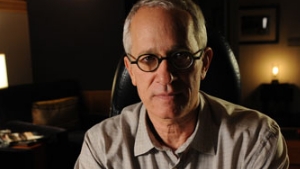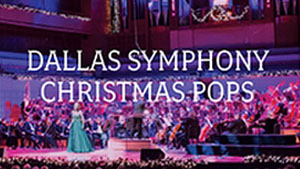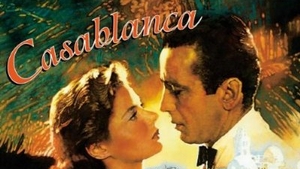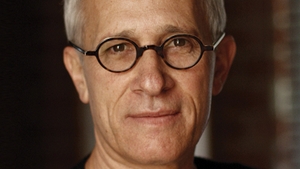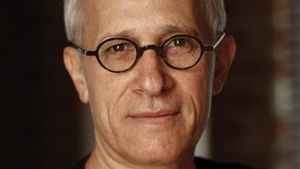
To kick-off the 2012 program in the Masters of Film Music series, the Dallas Symphony Orchestra invited Oscar-nominated film composer James Newton Howard to perform a collection of his favorite and well known cinematic themes. With over 100 films to his name and 27 years experience scoring films he’s a legend in film circles and has become one of the most versatile, dynamic and in-demand musicians in his field. Howard had been asked several times by the Dallas Symphony to come and play a series of his themes.Howard admits, as he told us in our exclusive with him, that he had always wanted to do this and finally decided now was the right time.
Listening to Howard’s music, either in the movie or all on its own, is just a magical experience. However hearing Howard’s music live with an orchestra as accomplished as the Dallas Symphony bringing it to life is like being in the movie. A sensational show from start to finish this concert, surprisingly enough, was Mr. Howard’s first time to ever conduct his music in public. The following is a recap of the sensational and unique performance. Enjoy!

James Newton Howard has his own style and has created some of the most memorable film music in modern cinema. His true gift is his ability to tap into the absolute heart and soul of each story he scores. Howard consistently creates weighty and emotional connections to the events in screen that are not just tailored to the story but are seemingly are grafted to the film’s genetic code in a way few composers are able to attain.
One of the most amazing things to note about Howard’s music is that he’s almost impossible identify the work as being as his. Other composers use familiar themes, signature riffs, etc. but his music is a unique product each and every time he scores and is specific to the movie and that movie alone.
Howard’s work, which I’ve always highly admired, never fails to give me chills and in concert that feeling was intensified nearly tenfold, even during the rehearsal session. Walking into the rehearsal I was in awe of the brilliant fanfare to Lawrence Kasdan’s Grand Canyon and just blown away by the choral work of “Atlantis” from Atlantis: The Lost Empire. Nearly every artist has a passion for their craft but while watching him conduct his masterful creations and see him recognize the symphony after each track it is easy to see just how much pride and joy he has in his work.
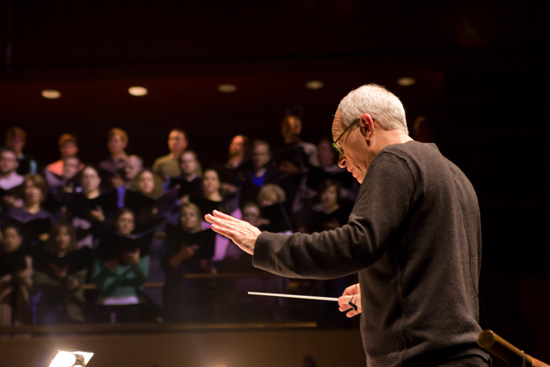
Howard started the concert with his track “The Inner Sanctum” from Disney’s Dinosaur which was a fantastic and weighty choice to open the evening. The screen above featured the opening sequence to the film which really brought his music to life.
The following track “The Hand of Fate” from Signs is perhaps my favorite track from one Howard’s finest efforts. There was no video but it still succeeded in giving chills as the flute section was simply sensational. So much so that Howard asked them to stand afterwards to take credit for their work.
Between tracks Mr. Howard gave a little personal anecdotes and shared his thoughts and experiences on each piece. In his Suite from Peter Pan he says despite the fact it didn’t do well commercially (being quote “too old for the young kids and too young for the old kids“) he really enjoyed working on this and is proud how it turned out. It must be tough to create new material for a story that’s been told so many times but while I’m biased and partial to John Williams’ magnificent Hook score Howard’s Peter Pan is just as good. As a fan of both their works I believe Howard’s efforts can stand toe-to-toe with Williams any day of the week.
One of the biggest thrills of the evening happened rather unexpectedly (mostly because I hadn’t read the playbill) and was a rare conversation between two film legends, Lawrence Kasdan and Howard. The two sat down and shared some personal stories experiences in a very insightful Q&A. I wish I had been able to record it as my notes just don’t do their exchanges justice but here are some of the noteworthy points in from their exchange:
- Early in his career James Newton Howard was asked to score Grand Canyon and over the next 25 years have become truly great friends.
- When Kasdan asked how he creates his works, Howard calls his process “intuitive“. He went on to say “I just get a feeling to use a certain instrument” but the secret to his process is to write during a “stream if consciousness” and he usually starts by writing a suite for the film before any footage is even shot. Howard finished by saying that he just starts writing to get a kernel of a theme to see how it plays out and tries to get emotionally invested in it.
- Howard has a fear of writing however the more he knows about the director’s thoughts the more it helps him focus. “Anyone can write” he began “but this business us about rewriting. The composer interprets the director’s feelings“.
- However, writing is not without its setbacks and difficulties. Howard admits that after writing a lot of material “it’s tough to hit Command Delete but I do it a lot“. Kasdan asked if James keeps any music that just doesn’t fit the current project (something he calls “lost sheep“) to use in the future to which Howard responded that he’s only used them on a couple Kasdan movies which got some hearty laughs.
- The two talked about their friendship and discussed their two proudest collaborations the epic sounds created for both Kasdan films Grand Canyon and Wyatt Earp before thanking each other for their individual commitments and achievements and continuing with the program. The two discuss Howard’s impact on a film and as an example watched the Empire State building from 2005’s King Kong with and without Howard’s music.
- “Composing is a collaborative affair” and something Howard values with each project. He claims that in this business it’s all about relationships” and some he’s had for decades. It’s clear the two enjoy working with each other and they will again collaborate on Kasdan’s upcoming film Darling Companion.
- Yet among the accolades and respectful superlatives exchanged between the two (as well as what followed Howard’s reading of Lawrence Kasdan’s CV prior to the Q&A), probably the most flattering thing Howard had to say about Lawrence Kasdan was to call him “his friend“.
The session then continued with the “Grand Canyon Fanfare”. It’s an extremely majestic theme that helps tell Lawrence Kadan’s story of Los Angelinos, each lost and struggling in their own lives, who come together and find solace in each other. Howard’s music played brilliantly against the credit scene of the movie that flew through the Canyon. Following the boombastic final notes of the majestic theme, Howard credited the DSO’s French Horns.
Another Kasdan film Wyatt Earp was the first part of the final selection before intermission. Back-to-back Westerns was a really nice touch as we were able to see how Howard handled two very different themes and stories from the same genre; both of which were very moving. Earp was more of a pensive score that reflected the struggle to tame the West and Hidalgo was an emotional roller coaster adventure story.
– – – – – – – – – – – –
Intermission
– – – – – – – – – – – –
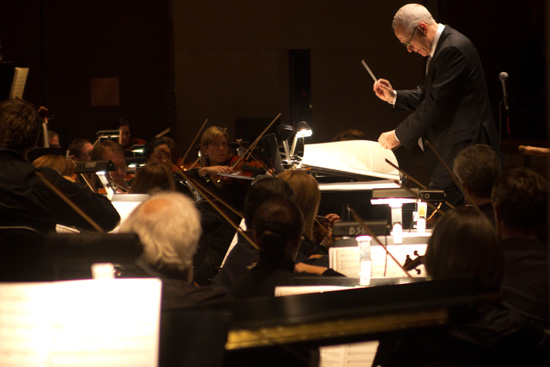
After the intermission, Howard began with not only the theme “First Kiss” from Pretty Woman but with a bit if trivia that he’s scored 9 Julia Roberts films. The giant screen above the orchestra played a montage of all 9 films. Getting the rights to all the video used in the performance wasn’t cheap and to help with the overall production, Howard donated his fee for the concert towards getting the rights to use more footage during the concert.
Longtime M. Night Shyamalan collaborator, James Newton Howard has scored every Night film to date. Two of his most memorable and recognizable works are “Cole’s Theme” from The Sixth Sense and “The Gravel Road” from The Village. Howard improves and advances musically with each Night film but while I think Signs is the most dynamic score he’s done, The Village is where he really hit his stride. It is one of the most hauntingly beautifully melodies I can recall. It really captures the spirit and feeling of the film and on Friday night he DSO violins were on fire perfectly replicating the sound of Hilary Hahn.
If people didn’t already know his work before, Howard became a household name when he worked with similarly legendary composer Hans Zimmer to create the music for Chris Nolan’s Batman series. Howard says working on the films was a treat as he and Zimmer were able to realize an idea they once had that would have one of them finish the music the other started and vice-versa. While the collaboration was a success Howard felt that his contributions to the franchise were done especially after hearing what Zimmer did for Nolan with Inception. He said that the greatest thing he took away from their work is that they remained friends and out of all their brilliant work, Howard chose to play “The Harvey Dent Suite” from The Dark Knight.
The theme “Tarawa” from Snow Falling on Cedars was a touching and sweeping tune that I’d never heard as I’d never seen Snow Falling on Cedars. However, like all of Howard’s music, it was compelling enough to get you to research it to find out what other beautiful music and melodies are in his catalog. As Howard is skilled as making music, when need be, indigenous to the location the orchestra shifted seamlessly from a beautifully classical composition to a native Japanese sounding theme right down to the taiko drums.
Another film Howard is proud of that also didn’t do great commercially was Water For Elephants. Personally speaking Howard has always embodied a brand of cinematic magic but his score for Elephants brought his work to a whole new level as he fully captured that intangible wonderment and mystique that exists in all of John Williams scores. Howard says very simply that it was “fun to write circus music”
As he began with a Disney film Howard concluded the evening with a combination of rousing and otherworldly themes to Disney’s fantastic animated films Treasure Planet and Atlantis: The Lost Empire. As Atlantis is a soundtrack I know probably the best out of all Howard’s amazing and noteworthy work, the sensational track “Atlantis” was brought to an even fuller vibrancy Thanks to the DSO choral section. Their efforts in other themes stood out that evening but this was where they really shined.
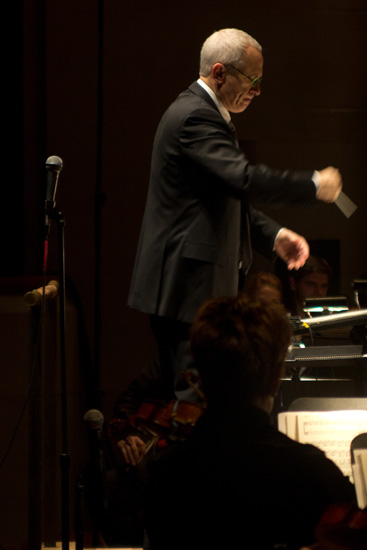
As a fan of his work it was amazing to see him conduct so many themes that I’ve become incredibly fond of over the years. The only thing that topped that was the chance I had to interview this icon of the film community. It is not only a rare honor I’ll cherish forever but one that makes me hold him in even higher regard.
Howard already had 5 scores to his credit this year including The Bourne Legacy and Snow White and the Huntsman. His performance with the DSO was an incredible retrospective and while his past work is expertly crafted, I eagerly look forward to his current and future endeavors with immensely interest and reverence to see what future contributions he’ll offer the world of cinema.
———————
If you enjoyed this write up we are overjoyed to let you know that the next composers in the Masters of film series is Mr. Harry Gregson-Williams and Michael Giacchino who will be coming in April and May respectively. Like the interview with James Newton Howard, we will be sitting down with both Gresgon- Willaims and Giacchino in addtition to giving you the recap of their performance with the world renowned DSO. Check out our post tomorrow which will showcase our EXCLUSIVE 2-part interview with this living legend and titan of the film world.
Footnote: All images provided by Go, See,Talk freelance photographer Mason Pelt.
